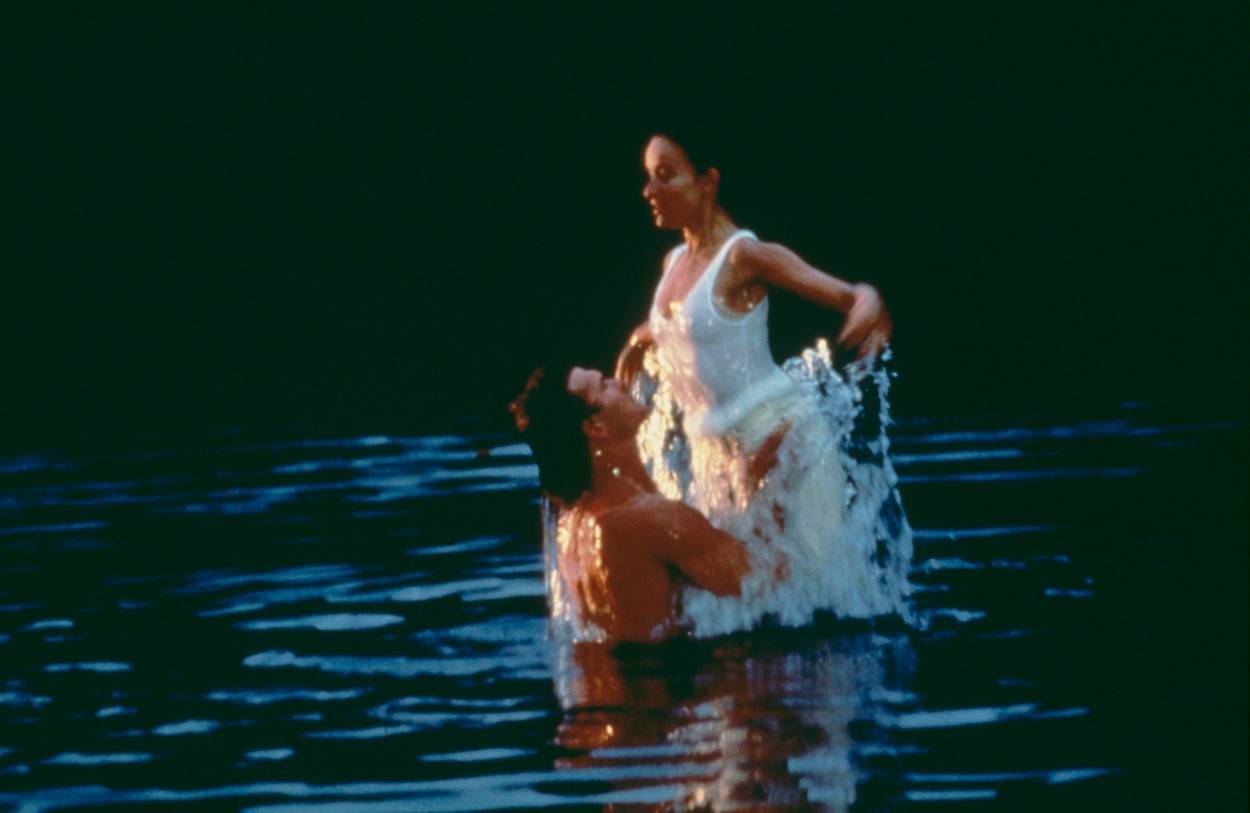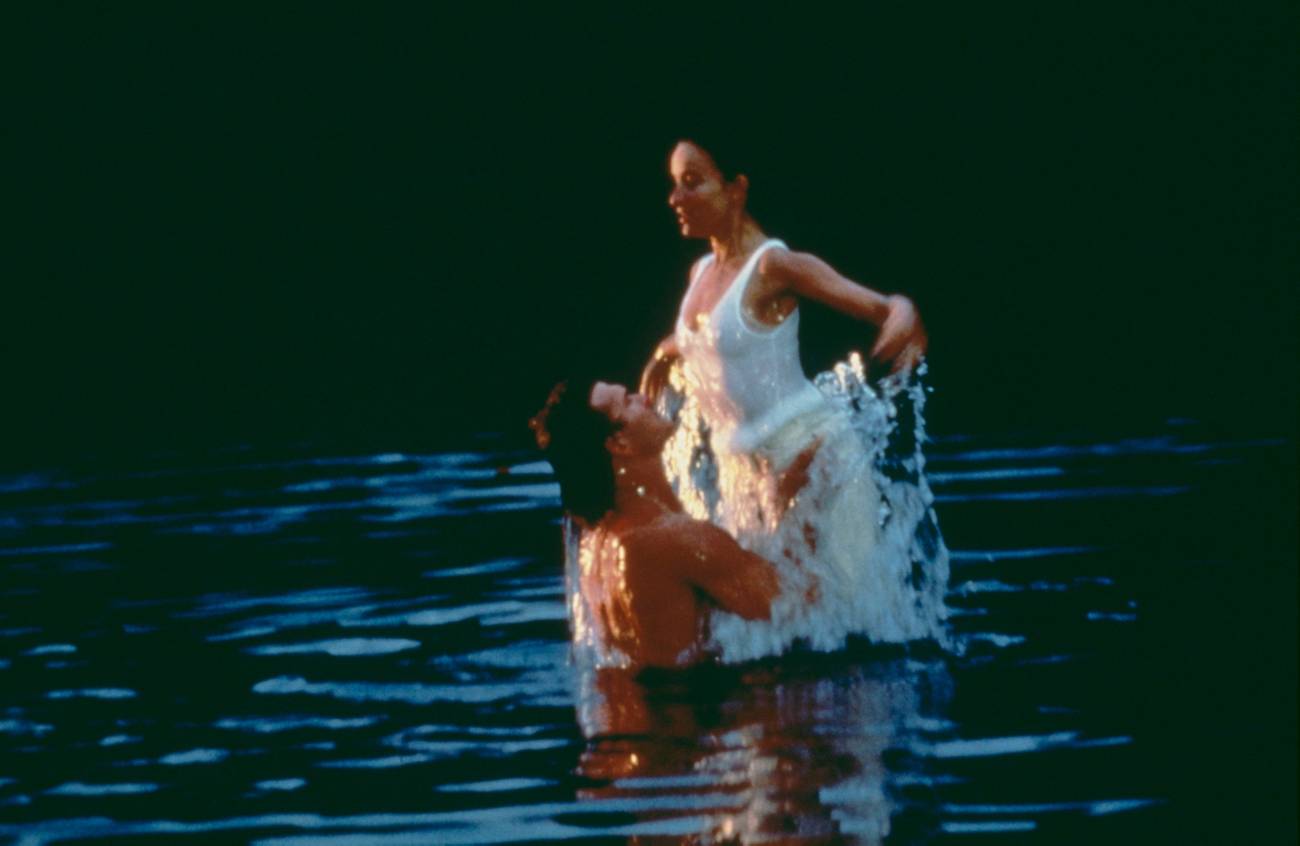‘Dirty Dancing 2,’ Go Away
The original film was about way more than The Lift. Why not try to make a sequel that’s even better … instead of cheesier?




Last week came the announcement: A sequel to Dirty Dancing is in the works, produced by Jennifer Grey. Details are still scarce, but a lot of us are viewing the prospect with a gimlet eye. For some, it’s in a “why mess with perfection” way. But for me, in my, ahem, advanced years (I was almost exactly Baby’s age in the original movie), it’s about fears that those making the movie don’t understand what made the first movie great.
The original Dirty Dancing was a movie about social justice. It wasn’t merely Nobody Puts Baby in a Corner. Yes, the sweaty, sweaty dancing and the two brilliant central performances (the fact that Jennifer Grey and Patrick Swayze loathed each other in real life surely contributed to the seething chemistry) and the triumphant, soaring ending are all vital to the movie’s popularity. But Dirty Dancing is more than that. It’s also about Jews’ roles in progressive movements and how, precisely, we choose to fight systemic inequities.
Stay with me here. The most formative scene for Baby/Frances is not The Lift. It’s Baby/Frances’ witnessing the aftermath of Penny’s illegal abortion. Screenwriter Eleanor Bergstein, who’d written a novel pre-Dirty Dancing about young women involved in antiwar work in the 1960s (it was called Advancing Paul Newman; feel free to enjoy the sexist, ageist review in The New York Times) had baked concerns about societal reform into her original script. Bergstein said she’d considered the impact of a ponderous black-and-white documentary about illegal abortion, but knew that a dance-y movie (she’d had a sexy dance scene cut out of the one film she’d previously written) would be more effective as an educational tool: “[I]f you make a movie in color with pretty people and music and sensual dancing and a beautiful blond young girl with a face like a delicate princess having no choices and screaming in a hallway under a dirty knife—maybe you’ll change somebody’s mind about what they assumed before,” she said.
And Baby’s liminal summer at Kellerman’s Resort in the Catskills isn’t just about her romance with a goyish townie. It’s also about realizing that her dad, her idol, is flawed. And it’s about her realizing that her rose-colored view of saving the world in some noble but unspecific way by going into the Peace Corps isn’t sufficiently nuanced; she sees up close for the first time that there’s injustice right here at home. And it’s about her realizing that privileged Jewish boys who are in a position to change the world for the better are instead choosing the status quo or worse (making Johnny dance the Pachanga; informing Baby that “some people count, some people don’t”; Ayn fucking Rand).
Baby also discovers the depths of misogyny even in “nice guys.” Her dad isn’t flawed only because he’s classist about her dating Johnny; he’s flawed because he immediately blames Johnny for impregnating Penny, sending her to “some butcher,” and moving in on “an innocent young girl like my daughter.” Imagine if it had been his “innocent” daughter who’d gotten pregnant, rather than working-class, non-Jewish Penny, who he’d never expect to have a meaningful future anyway.
Of course, certain people dislike Dirty Dancing because they find it cheesy and do not find Patrick Swayze luscious. But many feminist Jewish Gen Xers (me!) loved this film without lusting for Johnny Castle. We identified with Baby (and loved seeing our hair and noses on screen, and swooned for the adorable vintage-y fashion, and cringed with exquisite second-hand mortification at “I carried a watermelon”). I think I speak for this cohort when I say we’d love to see a movie in which Baby wrestles with the legacy of the 1960s. What an opportunity to look at the changing role of Jews in social justice movements! Fifty years ago, I’d argue, Jews were collectively more involved in progressive battles for America’s soul. Today … uh, some of us are? And some of us say “but Israel” and “but taxes” and vote Republican? And some of us are well-meaning moderates who say things like, “I agree with their goals but not their tactics” and resent Black people for not “appreciating” everything we white Jews “did for them” in the 1960s? And some of us well-meaning progressives can’t engage with Black Lives Matter and social justice movements in general without centering ourselves?
It would be so cool to see a movie that explored how Jennifer Grey’s character evolved, politically, as the years passed. It’s not too much to ask. Remember, her very first words in the first film were, “That was the summer of 1963, when everybody called me Baby and it didn’t occur to me to mind. That was before President Kennedy was shot, before the Beatles came, when I couldn’t wait to join the Peace Corps, and I thought I’d never find a guy as great as my dad.”
Something else happened in 1963, something Baby doesn’t mention. Letter from Birmingham Jail was written. This omission isn’t surprising, given how many Black characters are in Dirty Dancing. Which is to say, one (1). Tito, the Yiddish-speaking (oh ho ho!), elderly, non-status-quo-challenging, mild-mannered bandleader. There are some Black background dancers in the final scene, but the movie ignores the fact that all that sexy, revelatory new music and moves Johnny wants to bring to Kellerman’s are, of course, lifted from African American culture. The movie has a blind spot about race.
A new movie might address whether Baby goes on to fight for others’ freedoms without seeing herself as a white savior. The opening monologue implies that she didn’t go into the Peace Corps after all (since we know President Kennedy will get shot and she does find a guy as great as her dad, and hi, Rule of Three). Who did the adult Frances Houseman become? How did her consciousness of injustice change, and what form did her activism take? Or did she just give it all up for a comfortable, married, suburban existence, like Marjorie Morningstar?
I worry. The new movie, Lionsgate CEO Jon Feltheimer announced, “will be exactly the kind of romantic, nostalgic movie that the franchise’s fans have been waiting for.” Jon! No! I am not waiting for this! Have you learned nothing from Dirty Dancing: Havana Nights, the deservedly forgotten 2004 “reimagining” of the 1987 film, set in Cuba during the revolution but downplaying politics in favor of grinding? Screw your Vaseline-lensed nostalgia! I don’t want want a newly single Frances with a blowout and a teensy nose and a preternaturally smooth forehead, inhabiting a script by non-Jewish writers, perhaps Learning To Love Again in ’90s throwback fashions instead of ’60s throwback fashions! (I’m guessing? But I bet I’m right. Setting the film in the present day would make Baby 74 years old, and no way is Jennifer Grey gonna go for that. She’ll want to play someone at least 10 years younger than she is, the way she originally played a 17-year-old when she was 26, which would mean playing Frances in the late ’90s or early aughts. I have thought this through.) I mean, sure, I’d still enjoy seeing vintage fashion. But I also want the Frances created by Eleanor Bergstein: the heroine of a movie regarded as “too political” for its time … but one whose politics could go so much further today.
Marjorie Ingall is a former columnist for Tablet, the author of Mamaleh Knows Best, and a frequent contributor to the New York Times Book Review.